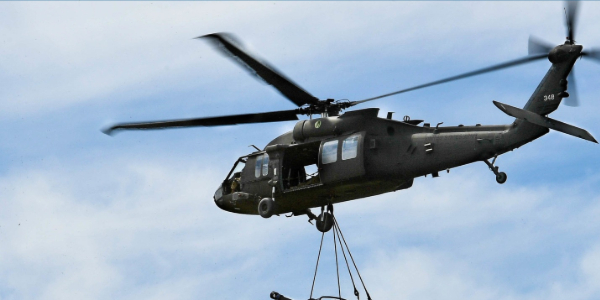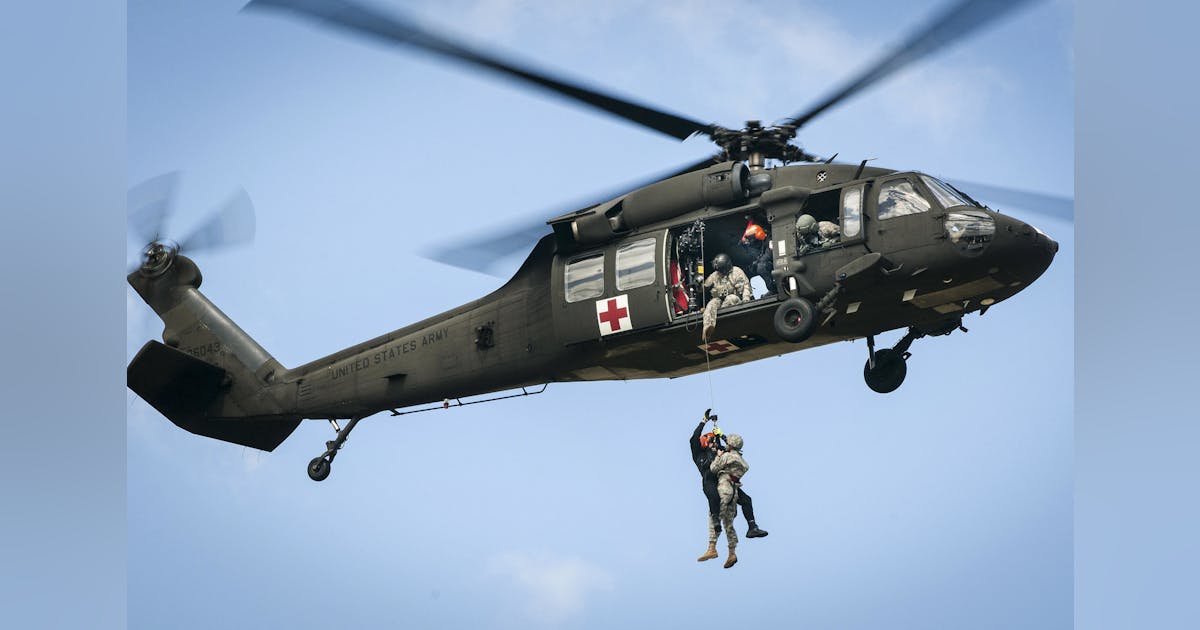UH 60 Helicopter Summary: Every Little Thing You Need to Know
UH 60 Helicopter Summary: Every Little Thing You Need to Know
Blog Article
The Role of Aircraft fit Worldwide Transportation and Trade Dynamics
The evolution of aircraft has actually indelibly transformed worldwide transport and profession characteristics, assisting in unmatched levels of connectivity and effectiveness. Through the facility of robust air freight networks, services can now browse international markets with exceptional speed and agility, therefore redefining supply chain techniques. Nevertheless, this change is not without its obstacles, as the aeronautics industry comes to grips with sustainability worries and governing stress. As we explore the multifaceted impacts of aircraft on global trade, it is vital to think about exactly how these factors will certainly form the future landscape of aviation and its role in the economic climate.

Development of Air Transportation
The development of air transport has actually been noted by substantial technological developments and innovations that have changed the way individuals and goods relocate across the world. From the Wright siblings' very first powered trip in 1903 to the growth of supersonic jets, each landmark has actually emphasized the unrelenting pursuit of effectiveness and speed in air traveling.
The last component of the 20th century experienced the development of business aeronautics as a sensible mode of transport, identified by the intro of jet engines, which transformed flight by drastically minimizing flight times. Additionally, technologies in navigating and interaction technologies have improved operational effectiveness and security, permitting for even more complicated flight courses and schedules. The surge of air freight in parallel with traveler solutions has further underscored the adaptability of air travel. As we look to the future, emerging innovations such as electric and self-governing airplane pledge to redefine the air transport landscape, making certain ongoing evolution and adjustment to worldwide demands.
Influence on Global Profession
Air transportation has exceptionally reshaped worldwide trade by facilitating the swift movement of items throughout vast distances. This expedited logistics capability allows services to react quickly to market needs, therefore boosting supply chain effectiveness. The capability to deliver perishable products, high-value items, and time-sensitive products has actually opened brand-new markets and opportunities for various markets, substantially affecting profession patterns.
Furthermore, the development of air freight networks has fostered globalization, enabling firms to resource materials and items from different components of the world seamlessly. This interconnectedness decreases preparations and expenses, allowing businesses to stay competitive in an increasingly worldwide industry. Additionally, air transportation plays an essential duty in ecommerce, where consumer expectations for fast distribution have actually driven a rise sought after for air cargo solutions.
The effect of aircraft on international profession includes the creation of critical trade courses, linking regions and assisting in international collaborations. Nations that buy air transportation infrastructure commonly experience enhanced financial development and raised foreign straight financial investment. In general, the evolution of air transportation has not only changed the logistics landscape however has additionally become an important part in the characteristics of global trade.

Economic Advantages of Aeronautics
A robust aviation industry generates significant financial benefits, adding to task production, tourism, and overall financial growth - uh 60. The aviation sector sustains millions of tasks internationally, ranging from straight work in airport terminals and airlines to indirect functions in fields such as friendliness, transport, and logistics. According to sector records, for each job in the aviation sector, roughly 3.5 added tasks are produced in the wider economy
Tourism is a critical aspect of the financial benefits acquired from aviation. Flight promotes international tourism, allowing travelers to explore diverse destinations, which subsequently promotes regional economic situations. Countries that purchase their air travel facilities often experience raised visitor arrivals, resulting in greater investing on solutions such as dining establishments, tourist attractions, and resorts.

In addition, air travel boosts global connectivity, enabling organizations to access brand-new markets and sources efficiently. As an outcome, markets such as ecommerce and manufacturing advantage profoundly from reputable air transport, more driving economic expansion.
Obstacles Facing the Air Travel Sector
Navigating a complex landscape of regulative, environmental, and economic difficulties, the aeronautics industry faces substantial difficulties that threaten its sustainability and growth. Rules surrounding safety and security and protection are continually developing, requiring ongoing compliance and adjustment from makers and airlines (uh 60). This can cause boosted operational costs and source appropriation that interferes with innovation and growth initiatives
Furthermore, ecological concerns have come to be critical, with expanding scrutiny over carbon discharges and sound pollution. The sector is under stress to take on greener modern technologies and practices, which typically call for considerable financial investment in r & d. Balancing these environmental duties with the need for flight provides a considerable obstacle.
Financial variations, such as increasing fuel costs and geopolitical uncertainties, additionally make complex the landscape. Airlines frequently grapple with volatile operating expense and changing guest demand, which can impact productivity and lasting preparation. Labor shortages and skill spaces in crucial locations add one more layer of intricacy, impeding operational effectiveness.
Ultimately, attending to these multifaceted challenges is vital for the aeronautics industry to keep its critical duty in international transport and trade, while making certain read here durability and adaptability in a significantly open market.
Future Patterns in Flight
Emerging technologies and moving customer choices are positioned to reshape the future of flight considerably. The assimilation of expert system and artificial intelligence is anticipated to enhance operational efficiency, improve airport terminal procedures, and improve client service. Predictive analytics will certainly assist in a lot more exact need projecting, permitting airline companies to enhance flight routines and pricing versions.
Sustainability is becoming a key motorist in air traveling, with the aeronautics sector increasingly concentrated on reducing carbon exhausts. Technologies in aircraft layout, such as hybrid useful content and electric propulsion systems, are being discovered to fulfill ecological targets. Furthermore, the adoption of lasting air travel gas (SAFs) is anticipated to play a crucial function in attaining net-zero exhausts by 2050.
Consumer preferences are changing in the direction of personalized travel experiences. Airlines are purchasing sophisticated information analytics to tailor services and boost consumer involvement, making certain a more customized trip from reserving to arrival. Additionally, the increase of remote job may bring about enhanced demand for leisure traveling, as individuals look for to incorporate job and holiday.
Conclusion
The development of air transport has actually changed international profession, generating considerable financial benefits while likewise offering obstacles that require tactical monitoring. The recurring adaptation of the aeronautics sector will certainly be necessary for maintaining its contributions to the international economic climate.
The last component of the 20th century saw the emergence of business aeronautics as a sensible setting of transport, identified by the introduction of jet engines, which reinvented air travel by drastically reducing flight times. The surge of air freight in parallel with passenger solutions has actually better highlighted the flexibility of air travel. Furthermore, air transport plays a vital duty in shopping, where consumer assumptions for rapid distribution have driven a surge in need for air freight services.
In general, the development of air transportation has not only changed the logistics landscape but has additionally end up being a vital element in the dynamics of global profession.
Sustainability is coming to be an essential driver in air travel, with the air travel industry increasingly concentrated on view it decreasing carbon exhausts.
Report this page